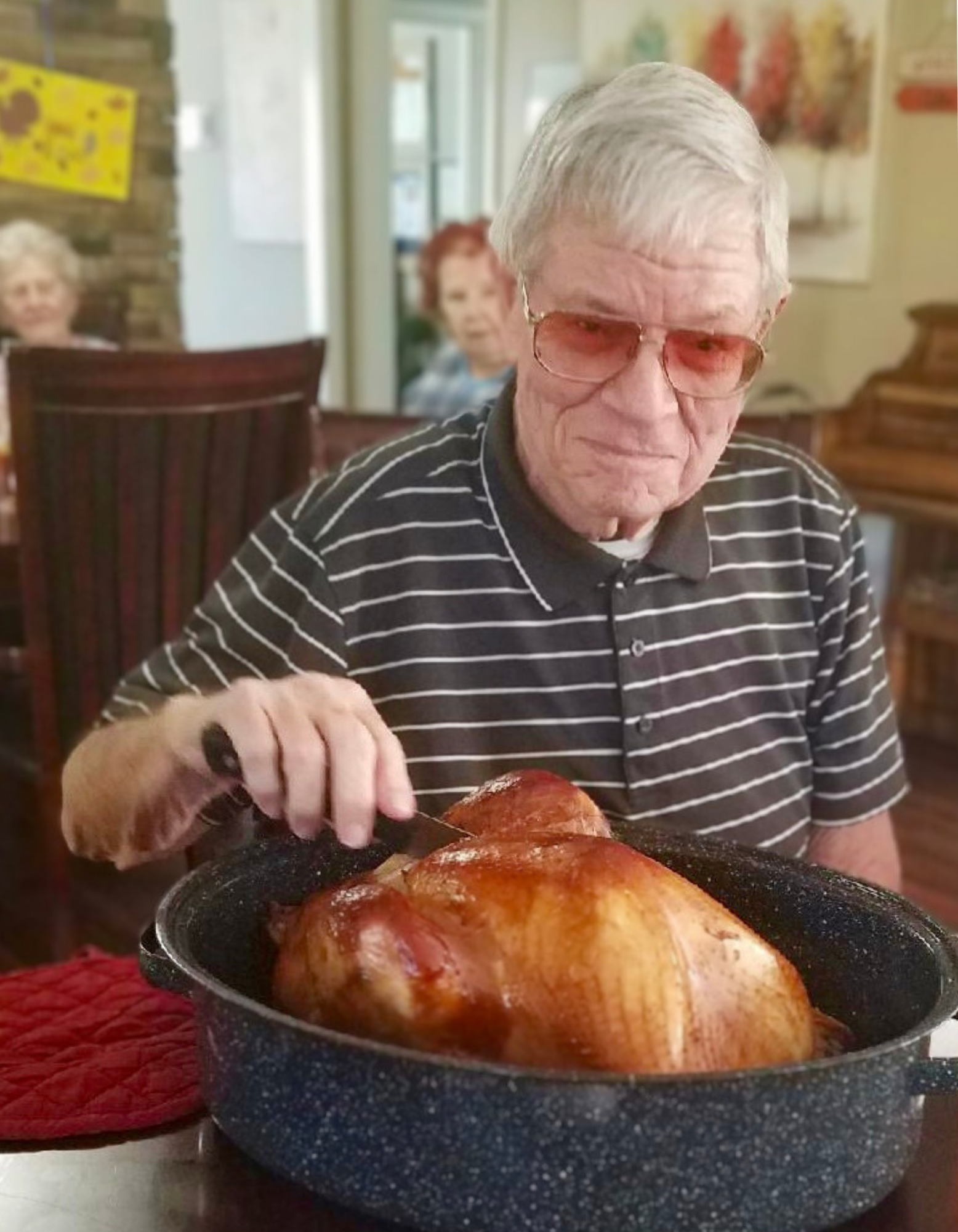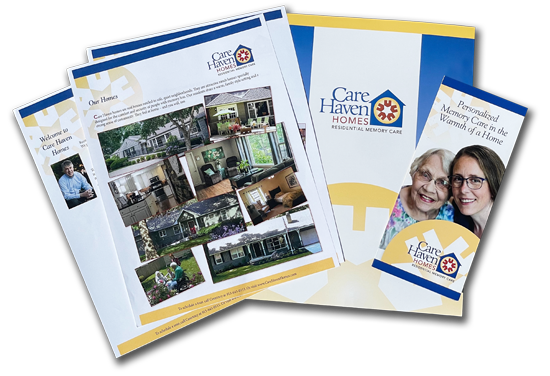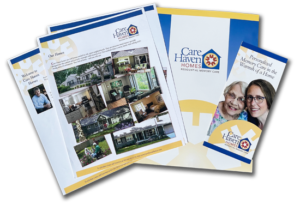
The holidays gather families together. We catch up over turkey and dressing, laughing as we bump elbows. Unless we’re coping with Alzheimer’s.
Someone living with this form of dementia finds it challenging to follow a lively debate. Loud voices and clanging pans jar them, leaving them irritated amid a cheerful crowd.
However, with a bit of planning and a lot of understanding, you can find a way to share your feast with a loved one with Alzheimer’s.
Secret 1: There’s No Place Like Home
The holidays bring back fond memories, tempting us to recreate our childhood celebrations. Certainly, Mom looks forward to joining a traditional family gathering in your home.
But does she?

The holidays gather families together. We catch up over turkey and dressing, laughing as we bump elbows. Unless we’re coping with Alzheimer’s.
Someone living with this form of dementia finds it challenging to follow a lively debate. Loud voices and clanging pans jar them, leaving them irritated amid a cheerful crowd.
However, with a bit of planning and a lot of understanding, you can find a way to share your feast with a loved one with Alzheimer’s.
Secret 1: There’s No Place Like Home
The holidays bring back fond memories, tempting us to recreate our childhood celebrations. Certainly, Mom looks forward to joining a traditional family gathering in your home.
But does she?
In Mom’s mind, this celebration is not hers, and neither is your home, even if she once lived there. Your furnishings and routines seem strangely unfamiliar, even unsettling, now that she’s coping with Alzheimer’s.
By all means, encourage Mom to join the festivities, but take care to help her navigate unaccustomed surroundings.
Secret 2: Plan Routes To AND Inside Your Home
- Will she need a walker or wheelchair?
- How will you help her on the stairs?
- Are there unobstructed pathways from the entryway to the living room, dining room and bathroom?
- Will she have the use of a sturdy armchair in the living room and at the table?
- Is the bathroom large enough and configured so someone can assist her there?
- Can she find a quiet place to rest if the festivities overwhelm her?
Someone who Mom trusts should stay by her side. Remind them to tactfully introduce her to loved ones she doesn’t recognize and watch for signs of fatigue or distress.
As you seat people at the table, make sure Mom is beside someone who can help her eat — with dignity.
Most importantly, devise an “escape plan.” Mom may surprise you by announcing she’s ready to leave just as you carve the turkey. Gentle urging and pleading are unlikely to change her mind. Line up a trusted family member to serve as your stand-in at the table or your mother’s chauffeur.
Finally, consider whether Mom prefers a quiet feast in her home instead.
- If she lives in an assisted living or memory care residence, ask about their Thanksgiving plans and be sure she participates.
- Consider privately celebrating Thanksgiving with Mom in a private room or quiet corner of her residence.
Secret 3: Find One True Thing
The key to happiness – particularly when coping with Alzheimer’s – is living in the moment. In other words, we enjoy our loved ones most when we leave their past in the past. Focus on appreciating the person before you — just as they are today.
You’ll both be happier if you also keep things simple.
What is the ONE thing Mom most loved as she prepared past Thanksgiving feasts? Give her THAT.
If Mom loves to set a beautiful table, ask her to put out the napkins or arrange fresh flowers for the centerpiece, but don’t pressure her to create a complex tablescape. As the family’s former chef, she may wish to help with the dinner. Suggest she prepare one dish beforehand, perhaps with the aid of understanding caregivers.
Don’t forget to thank Mom for her contributions to your family feasts, past and present. But don’t compare the past to the present. The important thing is that you’re still spending time together.
Finally, even Mom’s One True Thing may prove too much for her on the big day. If she doesn’t want to say grace or serve the pie, let someone else quietly step in to take her place. After all, that’s what family is for.
Secret 4: Every Day is a Time for Thanksgiving
Alzheimer’s loosens Mom’s ties to the traditional calendar. Why not let it relax yours, too?
Feel free to choose the best time and place to celebrate. Mom appreciates a special occasion tailored to her preferences — whenever guests can join her. Eating Thanksgiving dinner together on Tuesday is okay, so don’t feel guilty when you dine at different tables on Thursday.
Secret 5: Timing is Everything When Coping With Alzheimer’s

First, control your expectations, and then carefully plan a schedule to keep Mom safe and comfortable. Finally, if things don’t go as planned, be willing to draw things to a close.
Shorter usually is better on an overstimulating day.
- If your home is 15 minutes away from Mom’s, consider picking her up just 30 minutes before you expect to sit down for dinner.
- Upon arrival, help her spend 15 minutes visiting with friends and family.
- As dinner is served, fill Mom’s plate first, then that of the person who plans to drive her home.
- Expect to say your goodbyes soon after you finish dinner.

First, control your expectations, and then carefully plan a schedule to keep Mom safe and comfortable. Finally, if things don’t go as planned, be willing to draw things to a close.
Shorter usually is better on an overstimulating day.
- If your home is 15 minutes away from Mom’s, consider picking her up just 30 minutes before you expect to sit down for dinner.
- Upon arrival, help her spend 15 minutes visiting with friends and family.
- As dinner is served, fill Mom’s plate first, then that of the person who plans to drive her home.
- Expect to say your goodbyes soon after you finish dinner.
Coping with noise and confusing conversations in unfamiliar surroundings may leave Mom overtired. Cut her visit short when she seems weak, restless or upset. Too much “fun” may leave her overstimulated, agitated and miserable, unable to sleep through the night.
Secret 6 (critical when coping with Alzheimer’s): Be Prepared
Even if the visit is short, pack Mom a small bag with the essential supplies you don’t keep in your home. These might include
- A favorite sweater or blanket
- Continence supplies
- A change of clothes
- Emergency medication
Bonus Secret: Where to Learn More About Coping With Alzheimer’s During the Holidays
If you plan an overnight or more extended visit, read our post on traveling with dementia. And don’t forget to take a few pictures following our advice for photographing older adults.
The following resources offer more valuable advice for planning your holiday get-together:
- “The Holidays and Alzheimer’s.” Alzheimer’s Disease and Dementia, Alzheimer’s Association
- “Alzheimer’s Caregiving: How Can I Find Joy in the Holidays.” Mayo Clinic, Mayo Foundation for Medical Education and Research, 13 Dec. 2019
- “Holiday Hints for Alzheimer’s Caregivers.” National Institute on Aging, U.S. Department of Health and Human Services, 18 May 2017


